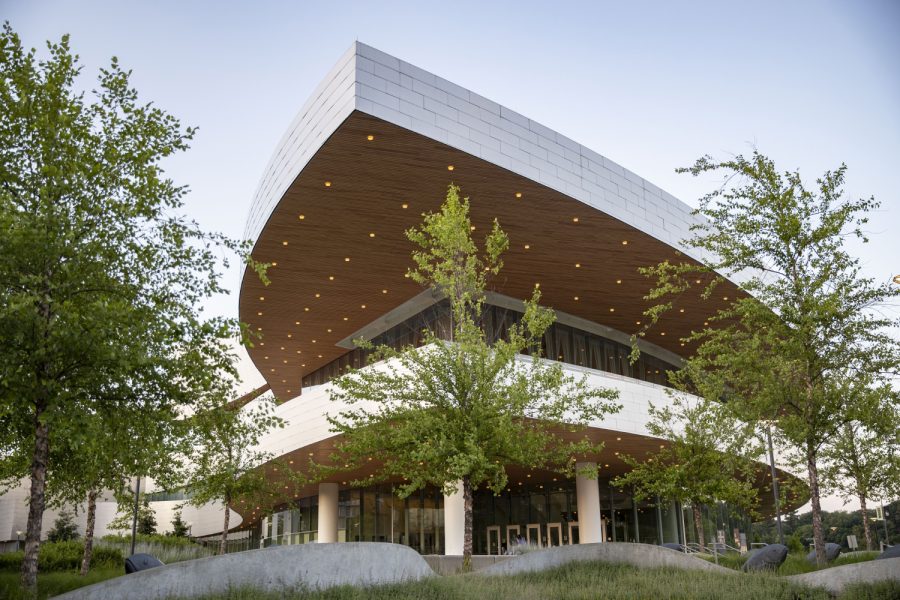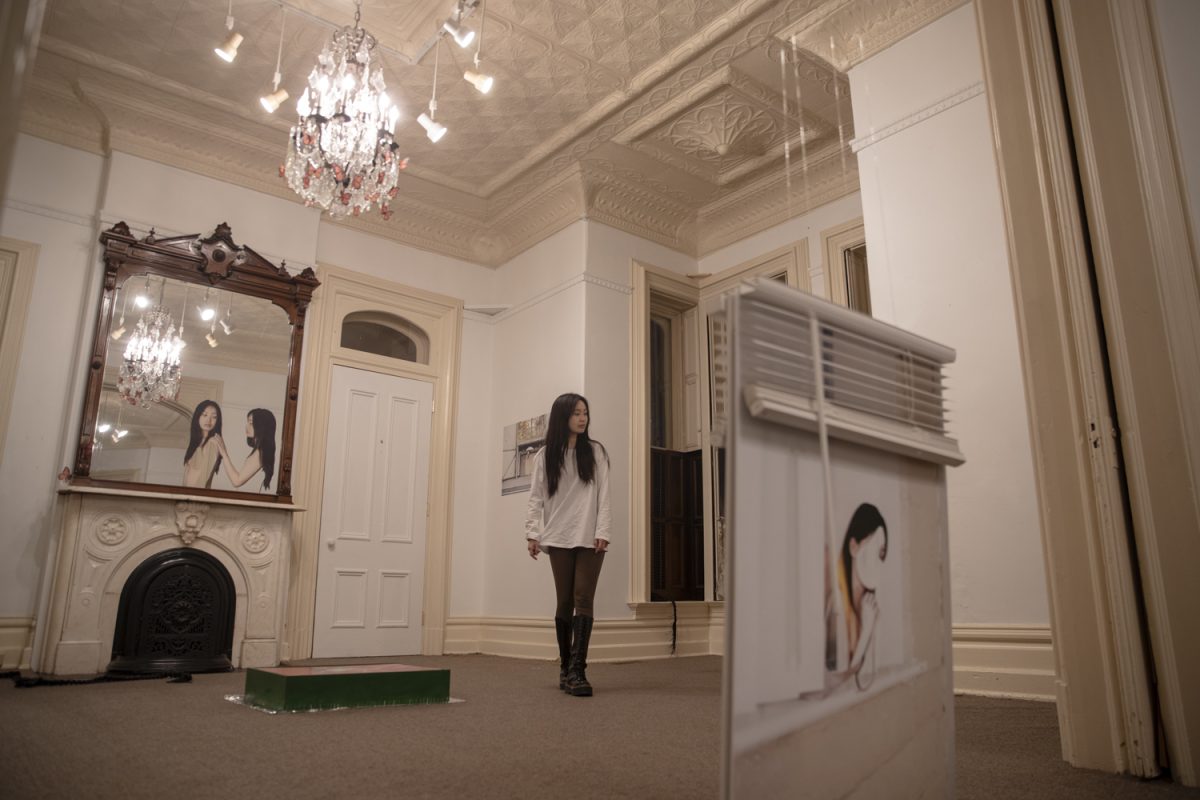Lez Zeppelin: redefining rock as we know it.
In one of the rare moments of downtime in Lez Zeppelin’s scorching set, a guy in the audience threw up devil horns and screamed, “I think I love you.”
The man can’t be blamed for his public display of affection — as soon as Lez Zeppelin slithered onto the Englert’s stage, the four badass bitches who channel the essence of Plant, Page, Jones, and Bonham made it clear that any resistance to their seductive spell would be futile.
The all-female Led Zeppelin tribute band has gained quite a reputation since its 2004 inception. The only tribute band to perform at the Bonnaroo music festival, the group has not only been featured on VH1 and MTV, it has also showered in the praise of a plethora of music critics, including hipster pop-culture journalist Chuck Klosterman.
It’s a shame when bands don’t live up to the hype, but Lez Zeppelin’s woes might only lie in said hype not being laudatory enough. From the sultry lines of the opening number, “Nobody’s Fault But Mine,” it was obvious that Lez Zeppelin’s estrogen-enhanced set would not only be technically spot-on, it would bring Led Zeppelin’s music to another level.
And what an unexpectedly delicious level it was. Though the band tended to overpower the vocals at times, every member’s stellar musical chops were evident: Each was more than capable of tackling the multi-octave screams, (double-neck) guitar licks, and theremin-produced space sounds their male predecessors dared to dream (Steph Paynes even used — and destroyed — a bow to caress her guitar into orgasm).
But possibly even more impressive was each woman’s ability to dominate her quarter of the stage with an unyielding presence. Drummer Leesa Squryes played the quintessential rocker chick in a bandana and ankh pendant (topped off in an Iowa T-shirt, earning major crowd points), bassist Jessica Fagre, donning a corset top and a slick blonde mane, appeared as if she had just stepped off the set of “America’s Next Top Model”, and guitarist/group founder Paynes was decked out in an open jacket over a barely visible bikini and rhinestone butterfly-embellished bellbottoms (one notable insect was positioned squarely on her groin).
Then there was lead singer Kris Bradley. Radiating a multifaceted mixture of coy sensuality and fiery sexuality that was, to be blunt, red fucking hot. Bradley was just as mesmerizing in her full-length fur coat as she was after she stripped it off, revealing ever-gyrating hips and a flare for reflecting the music’s moods through every contour of her body. Her versatile voice added a depth previously unknown to Robert Plant’s signature wails, an aggressive howl than often diminished to a vulnerable moan.
But the genius of Bradley and her bandmates is that Lez Zeppelin freely explores, rather than exploits, the nuances of a complex feminine sexuality on stage. Plant may have given us every inch of his love, but Bradley offers herself as both provider and recipient. Jimmy Page may be able to tear a chord progression to shreds, but Paynes will nurse it back to health — only to inflict more destruction in the end. To be cliché, these women know how to rock. To be provocative, these women are reinventing rock as we know it.
Near the end of the set, a smartass dude from the front row references both the “Lez” of Lez Zeppelin’s name and Iowa’s recent Supreme Court decision, yelling for the ladies to, “Get married while you’re here!”
Though I’m a heterosexual female, I have no hesitation in saying that I would love to forge a lifetime union with any of the babes in Lez Zeppelin anytime.






